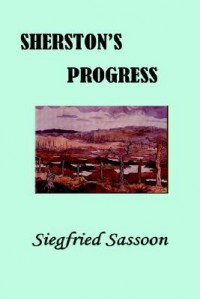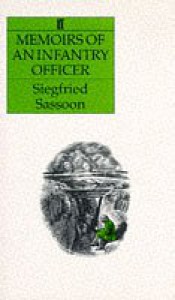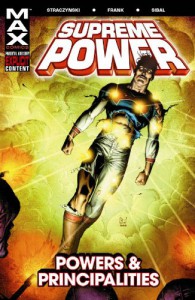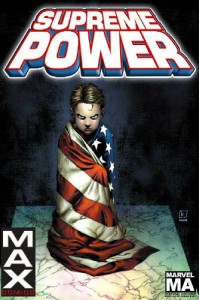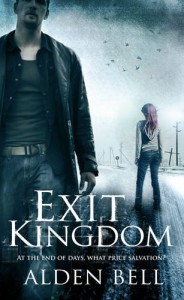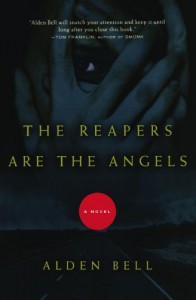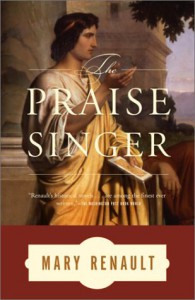
Is it wrong that this was the first book by Steinbeck that I’ve read? Certainly it is the kind of book one probably wouldn’t have even expected this author to have written. Known for his brooding meditations on the harsh life of the American experience in the mid-20th century, a translation/re-working of Malory’s stories about King Arthur and his knights certainly don’t seem like an obvious fit for Steinbeck. Reading through the letters written by the author himself in the appendix to this volume, however, makes it abundantly clear that the project was one that was near and dear to the author’s heart, into which he poured a significant amount of time & effort, and which he himself saw as possibly filling the role of crowning achievement of his work. I will here go on record with many other reviewers on Goodreads and state that it is a real shame that, for some unknown reason, Steinbeck never finished his work on this, though even the fragment he left us with is a significant work and one of the better treatments of the Matter of Britain I’ve read.
I must first admit that I found myself becoming slightly bored with the first third or so of the text. True to his words in the introduction Steinbeck hews very closely to his source text, Malory’s
Le Morte D’Arthur, and generally follows his plan of “leaving out nothing and adding nothing…since in no sense do I wish to rewrite Malory …” in the first four tales:
Merlin,
The Knight with the Two Swords,
The Wedding of King Arthur, and
The Death of Merlin. I generally have little use for ‘translations’ of Malory since I don’t really see the point; the Middle English he uses isn’t really that difficult for a modern reader to approach and I generally find that ‘modernizing’ the language simply takes the reader a further step from the text without adding anything of use. Happily for us Steinbeck seems to have taken advice from his editors to heart and in the subsequent tales really starts making the material his own while still staying true to the spirit of Malory. Indeed, from the very first sentence of
Morgan le Fay one can see Steinbeck breaking new ground and not simply aping his master. From here on we are treated to a really excellent interpretation of the tales that seeks to investigate the psychology of these figures from myth without reducing them to little more than modern people in medieval drag or diminishing the epic scope of the tales.
Arthur largely remains the peripheral figure he generally has to be for these tales, the enigmatic centre around which all of the other characters revolve and from whom they draw their glory. Despite this Steinbeck does attempt to invest the tragic king with some elements of individuality and provides one or two tantalizing glimpses of the man underneath the myth. We see the king’s early dissatisfaction with the trials of kingship and disappointment in the need to fight rebellion:
Soon after this, Arthur, wearied with campaigns and governing and sick of the dark, deep-walled rooms of castles, ordered his pavilion set up in a green meadow outside the walls where he might rest and recover his strength in the quiet and the sweet air.
We see his growth in wisdom as a leader of men:
Then Arthur learned, as all leaders are astonished to learn, that peace, not war, is the destroyer of men; tranquillity rather than danger is the mother of cowardice, and not need but plenty brings apprehension and unease. Finally he found that the longed-for peace, so bitterly achieved, created more bitterness than ever did the anguish of achieving it.
Indeed it is this very discontent that prompts Arthur and Guinevere, in Steinbeck’s version of the tales, to ‘trick’ Lancelot into setting an example for the other knights by adopting the lifestyle of the quest, an action that will prove to be both the greatest glory and the greatest sorrow of Arthur’s court. Throughout the work are strewn nuggets of wisdom, often coming from the mouth of Merlin in the earlier stories, and Steinbeck uses these tales of chivalry as an opportunity to meditate on the human condition. Thus we have:
”Somewhere in the world there is defeat for everyone. Some are destroyed by defeat, and some made small and mean by victory. Greatness lives in one who triumphs equally over defeat and victory.”
and
”You cannot know a venture from its beginning,” Merlin said. “Greatness is born little. Do not dishonor your feast by ignoring what comes to it. Such is the law of quest.”
I found myself noticing things here that I had missed or glossed over from my initial reading of Malory such as the incongruous nature of the various enchantresses generally known to be “the damsels of the Lady of the Lake and schooled in wonders.” They range from the damsel who gave to Arthur his enchanted sword Excalibur (the same maiden killed by Sir Balin for ostensibly having had his own mother burned at the stake) to the Lady Nyneve, the bane of Merlin who, despite her role in deceiving the besotted old enchanter, stealing his knowledge, and leaving him buried alive is not portrayed as evil. She does this act to gain power, but learns that with great power comes great responsibility. In the end she seems to take on Merlin’s role as protector of the realm, though in a somewhat lessened capacity, and gets her own reward for being true to the lonely path of power that accepts responsibility: the love of the good knight Pelleas. Finally there are also the four queens (including Morgan le Fay) who capture Lancelot and put him to the test with their illusory blandishments. They may or may not be members of this same circle of enchantresses, but they equally represent part of the same intriguing puzzle: just what are they? Members of a school for magic? A group of proto-feminists looking for a way to power in a man's world? Something of both or neither? Some seem to be evil, working deeds of mischance and violence, others good, though often they are no less violent in this world of martial law and divine retribution. Perhaps it’s most appropriate to say that the true test comes in that some work for their own selfish interests while others work for the common good.
It was also refreshing to see the varied characterization of the questing knights (and their three fascinating ladies) in the tale
Gawain, Ewain, and Marhalt. Indeed, the entire section provides Steinbeck with interesting character studies, not to mention much fodder for his social and personal concerns. Marhalt rocks and it was very nice to see a knight of Arthur’s court so clear-headed and competent without vainglory…a rare thing. He is a man with both skill and self-knowledge, the quintessential man of experience, and it’s a bit sad to know that his fate in the cycle is to be killed by that jack-ass Tristan (though Steinbeck does not himself tell this episode). The training of young Ewain (in many ways the opposite of Marhalt) by his own Lady was equally wonderful and showed how far Steinbeck had come: much of this tale seems to have been created by Steinbeck himself and yet it in no way felt like he was departing from the spirit of Malory specifically or the Arthurian tales in general.
The final entry
The Noble Tale of Sir Lancelot of the Lake shows Steinbeck truly coming into his own. It becomes obvious here (and is confirmed by statements made by Steinbeck in the letters found in the appendix) that Lancelot was the true centre of Steinbeck’s tale and was the character through whom he hoped to develop the real through-line of his thoughts on the Arthurian corpus. Lancelot gave the author everything he needed to work through the concepts of human fallibility mixed with nearly superhuman stature. The entire theme of the greatest good often leading to the greatest evil could play out in full measure with all of its varied nuances with Lancelot. From the description of his life as a young boy, hearing Merlin’s prophecy regarding his future peerless knighthood and subsequent desire to fulfill it, to the discontent of a man who has honed himself to perfection and is looking for it in an imperfect and jaded world we really begin to get a glimmer of the power Lancelot held as a character for Steinbeck and the heights the author might have achieved had he finished his work. Alas such was not to be and we are thus left with only a fragment of what might have been so much more. Still a fragment is far preferable to nothing at all.
I can’t close without adding that the letters in the appendix were an unexpectedly intriguing look into the mind of both Steinbeck the man and Steinbeck the writer. His complete love for the Arthurian material (and especially his deeply felt personal connection to Malory as a writer)and single-minded devotion to his research came as something of a surprise to me and it was equally fascinating to get a glimpse of his personal ruminations on the writing process. In addition to these writerly concerns we get to see Steinbeck the man wrestling with his own fears and feelings of inadequacy in a work which he thought “should be the best work of my life and the most satisfying” and which he even felt contained “the best prose [he had] ever written.”
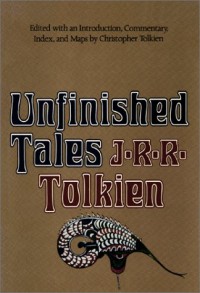 This is the first work that showed us how Tolkien's obsessive perfectionism was a double-edged sword. On the one hand it gave us the wonderfully deep world and implied distances of [b:The Lord of the Rings|33|The Lord of the Rings (The Lord of the Rings, #1-3)|J.R.R. Tolkien|http://d.gr-assets.com/books/1347257199s/33.jpg|3462456]; and on the other hand it left us with a jumble of tales in various states of revision and development that had to be compiled by Tolkien's son Christopher into some form as [b:The Silmarillion|7332|The Silmarillion|J.R.R. Tolkien|http://d.gr-assets.com/books/1336502583s/7332.jpg|4733799]...a jumble of tales that, if they had been finished, would have given us a truly staggering body of work. Just reading the fragment that makes up the entirety of "Of Tuor and his Coming to Gondolin" makes me weep for what might have been. Given the chance to expand even half of the partial tales from _The Silmarillion_ into something equating the full treatment of the LotR would have been a wonder indeed.
This is the first work that showed us how Tolkien's obsessive perfectionism was a double-edged sword. On the one hand it gave us the wonderfully deep world and implied distances of [b:The Lord of the Rings|33|The Lord of the Rings (The Lord of the Rings, #1-3)|J.R.R. Tolkien|http://d.gr-assets.com/books/1347257199s/33.jpg|3462456]; and on the other hand it left us with a jumble of tales in various states of revision and development that had to be compiled by Tolkien's son Christopher into some form as [b:The Silmarillion|7332|The Silmarillion|J.R.R. Tolkien|http://d.gr-assets.com/books/1336502583s/7332.jpg|4733799]...a jumble of tales that, if they had been finished, would have given us a truly staggering body of work. Just reading the fragment that makes up the entirety of "Of Tuor and his Coming to Gondolin" makes me weep for what might have been. Given the chance to expand even half of the partial tales from _The Silmarillion_ into something equating the full treatment of the LotR would have been a wonder indeed. 